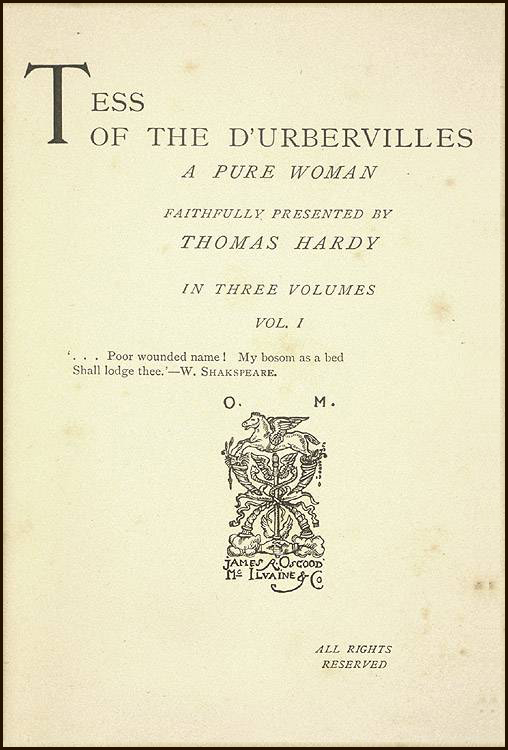
. .Much
to his surprise, he took, indeed, a real delight in their companionship.
The conventional farm-folk of his imagination - personified in the newspaper-press
by the pitiable dummy known as Hodge - were obliterated after a few days'
residence. At close quaters no Hodge was to be seen. At first, it is true,
when Clare's intelligence was fresh from a contrasting society, these
friends with whom he now hobnobbed seemed a little strange. Sitting down
as a level member of the dairyman's household seemed at the outset an
undignified proceeding. The ideas, the modes, the surroundings, appeared
retrogressive and unmeaning. But with living on there, day after day,
the acute sojourner became consious of a new aspect in the spectable.
Without any objective change whatever, variety had taken the place of
monotonousness. His host and his host's household, his men and his maids,
as they became intimately know to Clare, begun to differentiate themselves
as a chemical process. The thought of Pascal's was brought home to him:
"A mesure qu'on a plus d'esprit , on trouve qu'il y a plus d'hommes
originaux. Les gens du commun ne trouvent pas différence entre les hommes."
The typical an unvarying Hodge ceased to exist. He had been disintegrated
into a number of varied fellow-creatures - beings of many minds, beings
infinite in difference; some happy, many serene, a few depressed, one
here or there bright even to genius, some stupid, others wanton, others
austere; some mutely Miltonic, some potentially Cromwellian - into men
who had private views of each other, as he had of his own friends; who
could applaud or condemn each other, amuse or sadden themselves by the
contemplation of each other's foibles or vices; men every one of whom
walked in his own individual way the road to dusty death.

